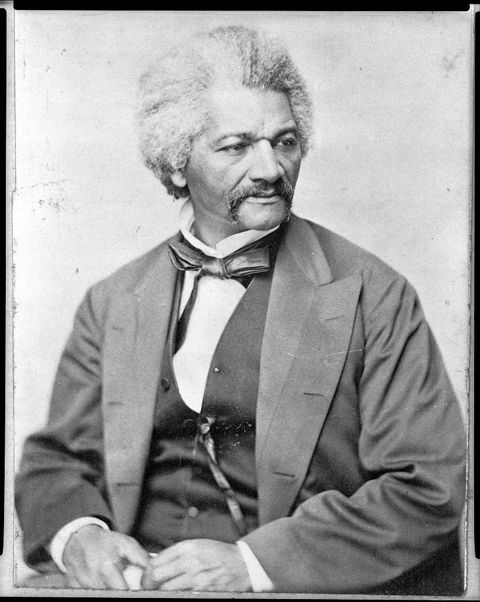- August 2, 1776 - Signing of the U.S. Declaration of Independence
Committee of five presenting their work to the Second Continental Congress, August 2, 1776
,_by_John_Trumbull-2.jpg?width=480&token=BQ%2Bjn1pYTA6%2BTUzK5mqdqPiqdoeGasd%2F0AcnccpnwjY%3D)
Signing of the United States Declaration of Independence, 1818 by John Trumbull
Trumbull, John (American, 1756 – 1843) - May 18, 1803 - Congress of Arcahaie adopts the Haitian flag
The Haitian flag was adopted on May 18th 1803, on the last day of the Congress of Arcahaie. The congress was a meeting that had two key outcomes; the establishment of a united command of the revolutionary army under the supreme authority of Jean-Jacques Dessalines, and the adoption of a flag by the indigenous army.
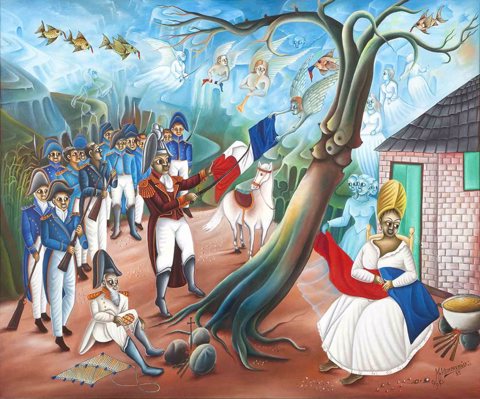
Dessalines Ripping the White from the Flag, 1995
Mompremier, Madsen (b,1952) - January 1, 1804 - Haitian Independence Day
Haiti made history by being the first black republic in the world and the first country in the Western Hemisphere to abolish slavery. The first two days of the calendar year is dedicated to commemorate the Independence Day and celebrate Ancestors' Day. Toussaint, Christophe, Petion, and Dessalines were the leaders of the Haitian Revolution. Jurant d'abolir l'esclavage.
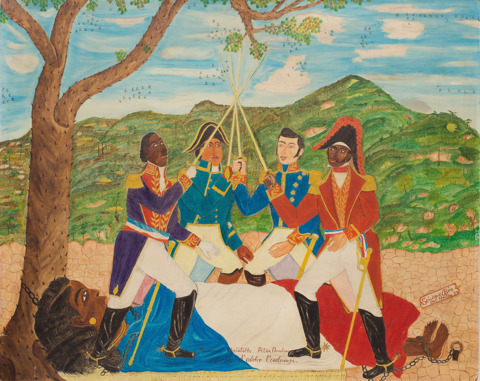
Toussaint, Christophe, Petion, Dessalines (Vowing to Abolish Slavery), 1959
Obin, Seneque (Haitian, 1893 – 1977) - July 26–29 - July Revolution of 1830 (France)
Liberty Leading the People is considered to be an anti-monarchist symbol. Delacroix painted his work in the autumn of 1830. In a letter to his brother dated 21 October, he wrote: "My bad mood is vanishing thanks to hard work. I've embarked on a modern subject—a barricade. And if I haven't fought for my country at least I'll paint for her."
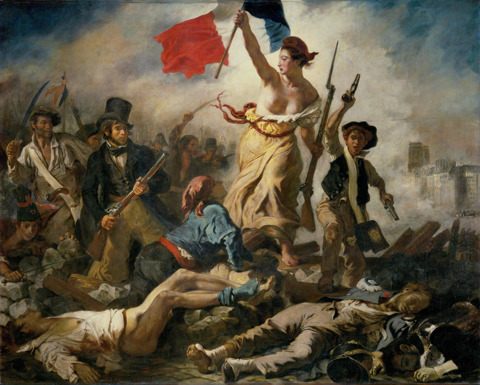
Liberty Leading the People, 1830. Louvre, Paris, France
Delacroix, Eugene (French, 1798 - 1863) - January 1, 1863 - Emmancipation Proclamation
President Abraham Lincoln issued the Emancipation Proclamation on January 1, 1863, as the nation approached its third year of bloody civil war. The proclamation declared "that all persons held as slaves" within the rebellious states "are, and henceforward shall be free."
While virtually all historians in the 21st century agree that conflicts over slavery caused the war, they disagree sharply regarding which kinds of conflict—ideological, economic, political, or social—were most important.
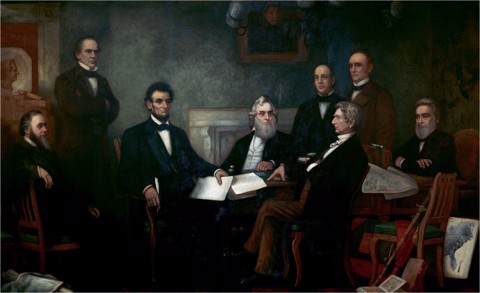
First Reading of the Emancipation Proclamation by President Lincoln, 1864
Carpenter, Francis Bicknell (American 1830 - 1900) - January 2, 1893
Frederick Douglass delivered an address at the dedication of the Haitian Pavilion at the World’s Columbian Exposition located in Jackson Park in Chicago. Douglass, a prominent writer, abolitionist, and publisher of the North Star, spent the years 1889 to 1891 in Haiti serving the Benjamin Harrison Administration as United States minister and general consul.
We should not forget that the freedom you and I enjoy to-day… is largely due to the brave stand taken by the black sons, of Haiti ninety years ago…striking for their freedom, they struck for the freedom of every black man in the world.
